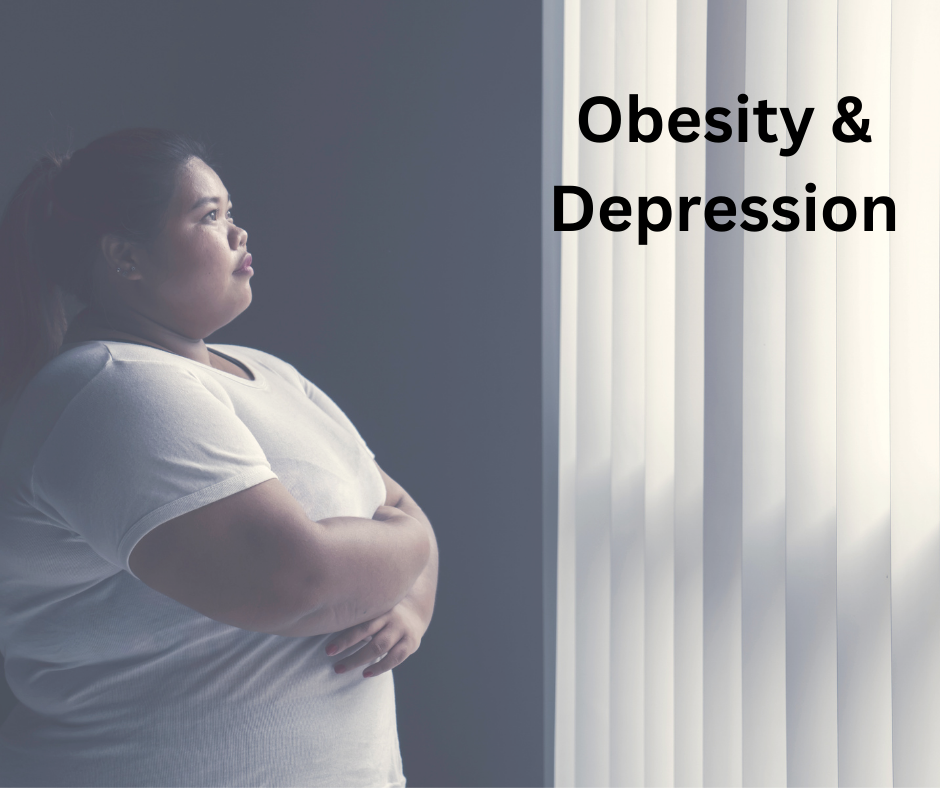In the United States, obesity has become an increasingly prevalent issue, with nearly 42.4% of adults classified as obese in 2017-2018, according to the CDC. Simultaneously, depression rates have increased, with the National Institute of Mental Health reporting that 17.3 million adults experienced at least one major depressive episode in 2021. Multiple studies have proven the connection between obesity and depression, revealing a strong correlation between the two conditions. This article explores the key statistics and research demonstrating the undeniable link between obesity and depression in the United States.
Obesity and Depression: A Vicious Cycle
Several studies have established the connection between obesity and depression. A meta-analysis published in the Archives of General Psychiatry in 2010 showed that individuals with obesity had a 55% higher risk of developing depression over time, and those with depression had a 58% higher risk of becoming obese. This vicious cycle becomes self-perpetuating as one condition exacerbates the other.
The Role of Inflammation
Research has also found that inflammation is a shared characteristic of obesity and depression. Obese individuals often exhibit increased inflammatory markers, commonly found in people with depression. A study published in Molecular Psychiatry in 2012 found that inflammation significantly develops depressive symptoms, further supporting the obesity-depression link
Gender Disparities
The relationship between obesity and depression varies by gender, with women being more vulnerable to this connection. A 2010 study in the International Journal of Obesity reported that women with obesity were 37% more likely to develop depression than those without obesity, while the risk for men was only 22% higher.
The Impact of Childhood Obesity
Childhood obesity is a significant concern in the United States, as it is strongly linked to the development of depression later in life. The American Academy of Pediatrics reported in 2018 that children and adolescents with obesity were more than twice as likely to experience depression as their non-obese peers. This demonstrates the importance of addressing obesity early in life to prevent its long-term impact on mental health.
Socioeconomic Factors
Socioeconomic factors contribute to the obesity-depression connection as well. Lower-income individuals are more likely to experience obesity due to limited access to healthy food and safe spaces for physical activity. A study published in Social Psychiatry and Psychiatric Epidemiology in 2012 found that obesity and depression were more prevalent among individuals with lower socioeconomic status, exacerbating the cycle of poor physical and mental health.
Tackling the Obesity-Depression Epidemic
To address the obesity-depression link, developing comprehensive strategies focusing on physical and mental health is crucial. This includes promoting healthy diets, physical activity, and mental health support. Early intervention and addressing socioeconomic factors can also help break the cycle of obesity and depression, leading to healthier and happier lives for millions of Americans.
Substantial evidence proves the link between obesity and depression in the United States. Numerous studies and statistical data demonstrate that these two conditions are deeply intertwined, creating a self-perpetuating cycle that impacts individuals of all ages and backgrounds. By acknowledging and understanding this connection, we can work towards effective solutions to address and prevent obesity and depression, ultimately improving the lives of countless Americans.
Don’t let obesity and depression define your life or the life of your loved ones. If you or a family member are struggling with depression related to obesity, now is the time to take action. Contact our compassionate and experienced team at Balette Bariatric Center or contact a trusted medical professional. Let us help you break the cycle and embark on a journey toward physical and emotional well-being. Don’t wait – your health and happiness are worth it. Call us today at 281-419-9400 or schedule an appointment online.

